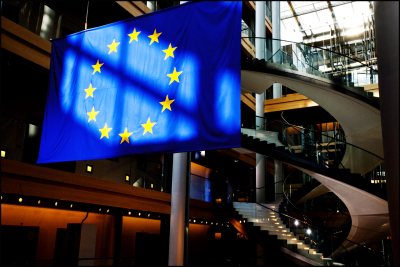Today marks 100 days of the new European Commission. A period of breakneck activity, in which lobbyists scramble to get acquainted with the new Commissioners and get to grips with the political priorities of President Von der Leyen. For its first 100 days, the new Commission has published over 1,400 high-level meetings* which are now available for scrutiny on our online platform Integrity Watch EU. While the number of meetings is in line with the 1,539 published in the first 100 days of the Juncker Commission, the share of NGOs in the total number of meetings rises from 18% to 27%.
The Green deal is the #1 most lobbied on topic in Brussels
The hot topic of the first 100 days is unquestionably the European Green Deal, spanning across numerous portfolios, making up nearly one-fifth of all high-level lobby meetings with Commissioners, Cabinet-members and Directors-General.
In terms of the most active lobbyists on the matter, the top spot is taken by EUROGAS, a hydro-carbon lobby organisation, which has held 8 high-level meetings with the Commission. The next three most active organisations are the International Association of Oil and Gas Producers, European Farmers (COPA) and Solar Impulse Foundation, who each held 4 meetings. While 1 NGO makes it to the top 3, civil society as a whole only constitutes 19% of all meetings mentioning ‘Green Deal’. In fact, out of the 34 organisations that had more than one high-level meeting with the Commission on the subject, only 5 of them are NGOs.
US big tech takes the lead on digital policies
The Commission’s other main priority of adapting the EU to the digital age has garnered slightly less attention from lobbyists in these first 100 days, yielding only 117 meetings, which comprises 8% of the total. This topic sees Google taking the top spot with 6 high-level meetings. The European Digital SME Alliance, representing the interests of EU-based digital SMEs, also appears among these large companies for the first time, as one of the few organisations in Brussels with more than one meeting on the topic of “digital”.
Nevertheless, the trend of US-based big tech companies taking the lead is appearing to continue as Microsoft, Facebook and Google have already reached the top of published meetings across all policy areas. A predictable result given that the regulation of the digital sphere will be significantly ramped-up in the first two years of the new legislature.
Timmermans is top among Commissioners
These first 100 days of lobbying also see Vice-President Frans Timmermans taking a clear lead in terms of absolute number of meetings (32), reflecting the importance his portfolio on the Green Deal. He is closely followed by Commissioners Mariya Gabriel (22), Margarete Vestager (21), Jutta Urpilainen (20) and Phil Hogan (16). Taken together, they represent 30% of high-level meetings published by Commissioners. At the other end of the scale, Commissioners Olivér Várhelyi, Elisa Ferreira and Johannes Hahn have each only had 2 meetings in their first one hundred days in office.
Our analysis demonstrates the importance of lobby transparency in the EU institutions. By publishing meetings, the Commission provides citizens, journalists, civil society organisations and lobbyists themselves a greater understanding of the decision-making process in the EU’s executive body. Having called for the EU institutions to be beyond reproach on ethics, transparency and integrity, President of the Commission Ursula von der Leyen is giving positive signals for a more robust regulation of lobbying activities in Brussels. With 9 high-level meetings already published, the President is well-positioned to understand the benefits of this exercise. As future negotiations between the three main EU institutions for a common mandatory Transparency Register are set to restart, we will keep encouraging the European Parliament and the European Council to bring their regulations in-line with those of the European Commission.
* The European Commission publishes past and future meetings. Only meetings published between the 1st of December 2019 and the 9th of March 2020 have been taken into account for this analsysis. The full list list of high-level meetings is available on integritywatch.eu






